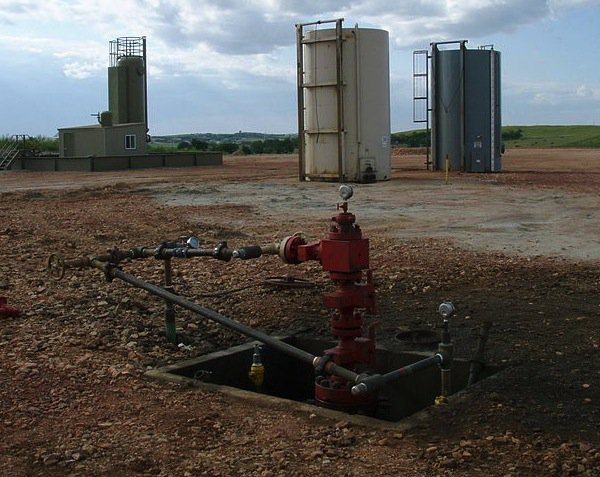Fracking Causes High Radioactive Levels in PA Rivers, Study Finds

Hydraulic fracturing, or fracking, has been a controversial topic lately, and it's little wonder why. Although fracking is an effective way of procuring natural gas, environmentalists are concerned about how the practice affects the planet.
Fracking refers to the practice by which workers use a mix of water, sand, and chemicals to blast open shale rock to release natural gas.
While fracking is very profitable and has dramatically increased U.S. natural gas production, it can severely pollute our air and water, especially if it’s not managed properly.
Radioactive River
One recent study, conducted by environmental scientists at Duke University, found high levels of radioactive materials in a western Pennsylvania creek near a fracking discharge area. The part of the creek where the wastewater was discharged contained radium levels 200 times higher than the water tested upstream near a treatment plant. The levels of radioactivity were above those permitted for safe disposal of radioactive waste. Duke scientists said they were very surprised to find such high amount of radioactivity and said such levels were rarely found. They recommended companies who use fracking not dispose of such dangerous waste in the future and that other disposal sites be tested.
The Debate
Proponents of fracking uphold the practice as safe. They claim that after wastewater is released, the chemicals diffuse in rivers and streams. Furthermore, the water is treated before it is consumed, so it is highly unlikely that radioactive materials would end up in drinking water. Opponents, however, say that waste from fracking is dangerous. Even though the chemicals may be diffused eventually, any wastewater released has a harmful effect on the plants and organisms living at the disposal site.
The Research
So far, testing at fracking sites has not proved inconclusively that the practice is harmful. One study discovered groundwater near a fracking site in Arkansas had in fact not been contaminated. Other research in western Pennsylvania found drinking water aquifers were not polluted by fracking.
On the other hand, research has not proved fracking to be safe, either. An earlier Duke University study found wells near fracking sites in northeastern Pennsylvania to be six times more likely to be contaminated than others.
Researchers believe the mixed results are caused by varying geological conditions and disposal practices. Sometimes, fracking waste is disposed of in deep injection wells, but in other times it’s added directly to streams, rivers, creeks and aquifers.
The Future
It is uncertain how exactly fracking will impact us in the future. The fact that we have not found conclusive evidence that fracking is damaging does not mean it’s safe. Even if wastewater is disposed in injection wells away from public water supplies, it may find its way into the groundwater in the future.
We just don’t know how fracking disposal may impact the environment in hundreds or even thousands of years. To minimize damage both now and in the future, scientists recommend the conditions near fracking sites be better monitored. The air, as well as the water, needs to be tested. Portable air quality testing devices, such as RKI single gas monitors, can be used to measure the toxins released into the air during fracking.
The Environmental Protection Agency has recognized that fracking can be damaging and has imposed penalties on some plants that have improperly disposed of waste. For example, the EPA issued an $83,000 fine to Fluid Recovery Services, which manages waste disposal for several Pennsylvanian plants.
The EPA also ordered the company to invest in $30 million of upgrades before it disposes of more fracking waste. Right now, though, there simply is no widespread, enforced monitoring of the conditions near fracking sites. Such monitoring is necessary if we want to see exactly how fracking impacts the environment.





